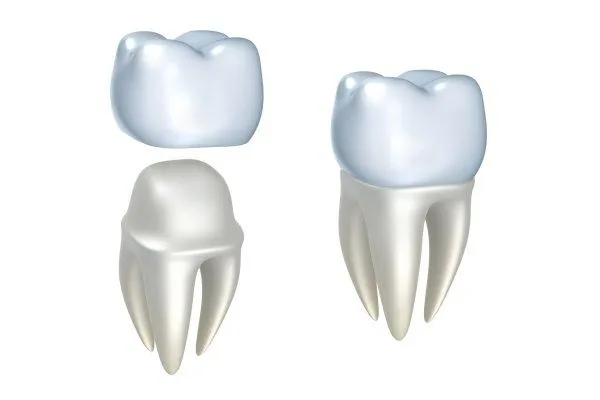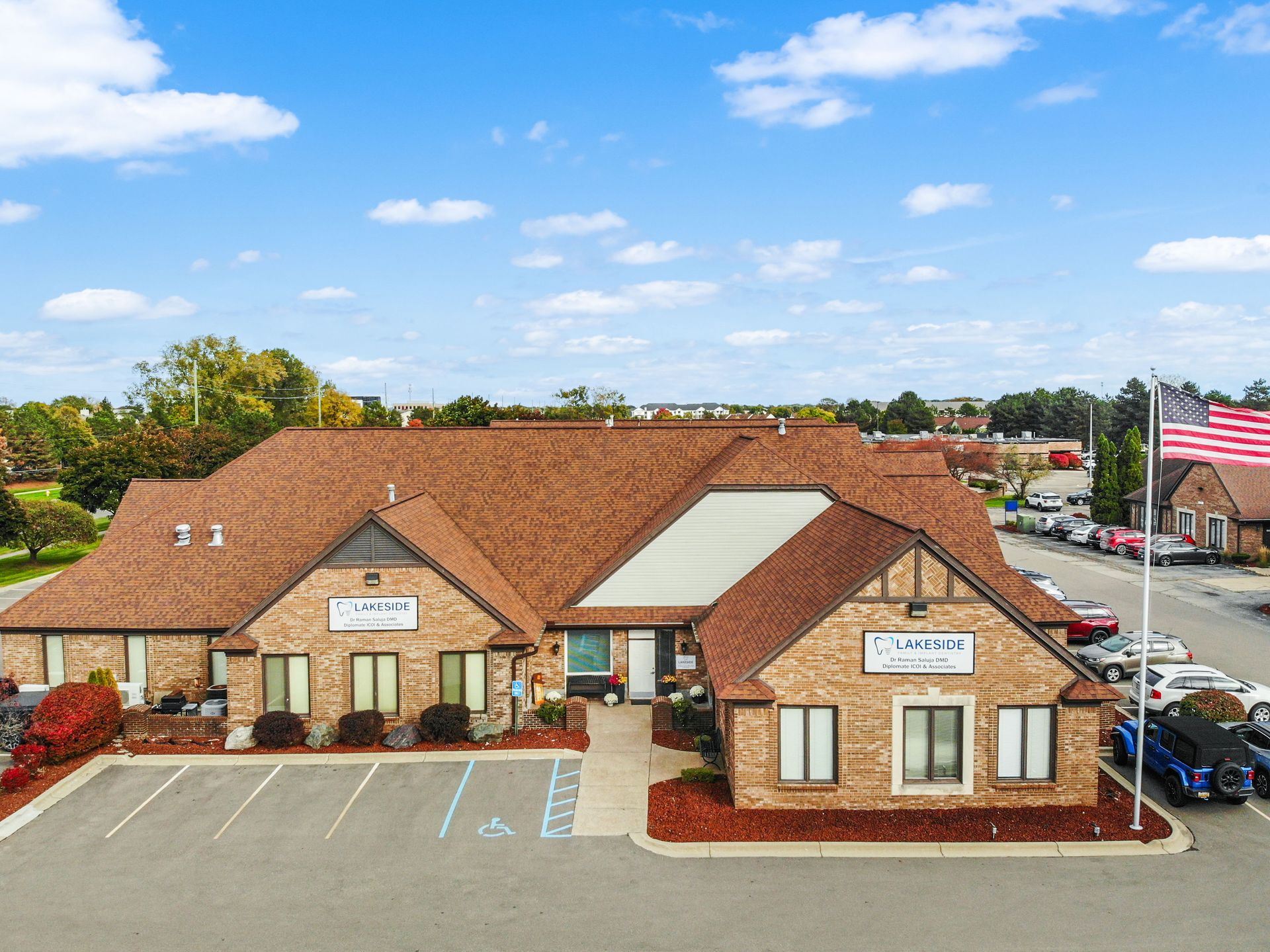Dr. Raman Saluja is Clinton Twp's Go-to Crowns Dentist
Looking for a dental crowns dentist in Clinton Township, MI? Dr. Raman Saluja is your go-to dental crowns expert in Clinton Township and surrounding areas. At Lakeside Family and Implant Dentistry in Clinton Township, MI, Dr. Raman Saluja specializes in restoring smiles with high-quality dental crowns. Whether you have a tooth that's cracked, decayed, or just in need of a cosmetic enhancement, our custom-made dental crowns are designed to restore both the function and beauty of your teeth.
What Is a Dental Crown?
A dental crown, also known as a tooth cap or dental cap, is a custom-made restoration that completely covers a damaged, decayed, or weakened tooth. It's designed to mimic the natural shape, size, and color of your existing teeth, ensuring a seamless blend within your smile.
Dental crowns are crafted from a variety of durable materials, including zirconia, porcelain and gold. Each material is selected depending on your unique needs and preferences.


For more information about our services or to schedule an appointment, call us at (586) 250-0497 or complete the form on our contact page, we’ll get back to you as soon as we can.
When Do I Need a Dental Crown?
Dental crowns are an excellent solution for a variety of dental issues, providing both functional and cosmetic benefits. Here are some of the best use cases for dental crowns:
- Restoring Damaged Teeth: Crowns are ideal for teeth that have been broken or severely worn down. They cover the entire visible portion of the tooth, restoring its original shape and size, and protecting it from further damage.
- Supporting Dental Bridges: Crowns can be used as anchors on either side of a gap where a tooth is missing. They hold the dental bridge in place, which contains the replacement tooth or teeth.
- Covering Dental Implants: After a dental implant has been placed in the jawbone, a crown is used as the top part to complete the look and function of the tooth.
- Enhancing Cosmetic Appearance: Crowns can be used to cover misshapen, discolored, or misaligned teeth, providing a more aesthetically pleasing appearance.
- Protecting Weak Teeth: For teeth that are weakened by decay or have a large filling and little tooth structure remaining, crowns can provide reinforcement, preventing them from breaking.
- Post-Root Canal Therapy: Teeth that have undergone root canal treatment often need a crown afterward because the treatment can leave the tooth more fragile than before.
Are There Different Types of Dental Crowns?
Types of Dental Crowns At Lakeside Family and Implant Dentistry, we offer various types of crowns to suit different needs:
- Porcelain Crowns: Popular for their natural color match, they are ideal for front teeth restorations.
- Porcelain-Fused-to-Metal (PFM) Crowns: Offer a stronger bond than regular porcelain because they are connected to a metal structure.
- All-Metal Crowns: Known for their durability and strength, making them suitable for molars.
What Are the Advantages of Dental Crowns?
Dental crowns improve the appearance, shape, and alignment of teeth while also strengthening damaged teeth, thereby enhancing your overall oral health and functionality. Crowns are also durable and provide a long-term solution with proper care.
- Restoring Function: Crowns are critical in reinforcing teeth that are weakened or damaged, ensuring they can handle everyday biting and chewing without further harm.
- Cosmetic Improvement: They are excellent for improving the look of teeth that are stained, poorly shaped, or cracked, helping to achieve a brighter and more uniform smile.
- Durability: With proper care, dental crowns are a long-lasting solution, effectively addressing various dental problems for many years.
- Protective Barrier: Crowns serve as a protective cover, safeguarding a tooth from additional damage or decay and preserving the natural tooth structure.
- Wide Applications: Crowns are incredibly versatile, useful in multiple dental treatments such as completing a dental implant or serving as support for dental bridges.
The Dental Crown Procedure:
The process typically involves two visits: during the first visit, the tooth is prepared by removing decay and shaping it for the crown, followed by an impression to create the exact mold for the crown. A temporary crown is placed while your custom crown is made in a lab. The second visit involves fitting and securely bonding the new crown to your tooth.
- Consultation: During your initial consultation, our experienced dentist will assess your oral health, discuss your concerns, and determine if a dental crown is the right solution for you.
- Preparation: The tooth receiving the crown will be prepared by removing a small amount of its outer structure. This ensures a proper fit for the crown.
- Impressions: Precise impressions of your teeth are taken, which are then sent to a dental laboratory to create a customized crown that matches your unique smile.
- Temporary Crown: While your permanent crown is being fabricated, a temporary crown will be placed to protect the prepared tooth.
- Final Placement: Once your custom crown is ready, you'll return to our office for its placement. Our dentist will ensure the crown fits perfectly, both in terms of function and aesthetics.
- Post-Placement Care: Following the crown placement, our team will provide you with proper care instructions to maintain the longevity and beauty of your new dental crown.
Experience Excellence in Dental Care at Lakeside Family & Implant Dentistry:
Lakeside Family & Implant Dentistry is dedicated to providing exceptional dental care that restores your oral health and boosts your confidence. If you're considering dental crowns or any other dental services, our knowledgeable team is here to guide you through your options and help you achieve the smile of your dreams.
Contact us today to schedule your consultation and take the first step toward optimal oral health and a radiant smile!
For more information about our services or to schedule an appointment, call us at (586) 250-0497 or complete the form on our contact page, we’ll get back to you as soon as we can.





.png)





.webp)
